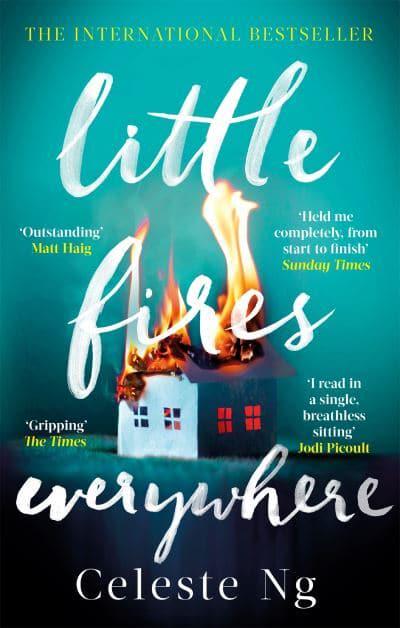
It has all the requisite elements for a satisfying read, since “meaning something” may be elective. This could be the kind of fiction that many book buyers are looking for. When all was said and done, I wasn’t sure this novel means anything. The temperature never seems to rise above 72 degrees fahrenheit. Ironically – is it fire? The interwoven plots do not feel contrived, but they do feel designed. Alternatively, the novel itself may have something missing, although I strain to identify exactly what that is. Possibly this childless reviewer has something missing, and is therefore indifferent to stories about babies, with which readers who are parents will deeply engage. The prose is supremely competent, and I didn’t mark a single line as weak – although, unusually, I underscored only one sentence in the whole novel (“The silence seemed to stretch itself out like taffy”) as being especially good. The dynamics between siblings and within teenage romances ring true. The author manages a large cast, multiple points of view, and all three rings of her circus with grace and authority. Ng deliberately sets poorer biological mothers against prosperous couples who might provide more opportunities, thus asking in whose custody a child is better off. In the first and second cases, both opposing parties have a legitimate claim on the child, and one party will have to sacrifice for the other’s happiness. I’m pro-choice and under-keen on teenage pregnancy, though other readers may feel differently. “What made someone a mother? Was it biology alone, or was it love?” “It came, over and over, down to this,” Ng spells out, perhaps too explicitly. In each instance, whose rights and desires take precedence?

Her family could afford to raise the baby, but a child would interfere with her forthcoming university education. 3) The older Richardson daughter gets pregnant by her unwitting boyfriend. Yet she began to form an attachment to the unborn child.

2) Years before, the Richardson’s tenant, Mia, carried a child for an affluent but infertile couple, after manually inseminating herself with the man’s sperm. But the little girl’s Chinese mother has got her act together, and wants her daughter back. 1) Close friends of the Richardsons have taken in a baby abandoned at a fire station, whom they hope to adopt. Ng constructs a three-ring circus, each subplot posing a moral quandary regarding an infant. Little Fires Everywhere is less about arson than babies.

The world in which I had read this book would be indistinguishable from the one in which I hadn't


 0 kommentar(er)
0 kommentar(er)
